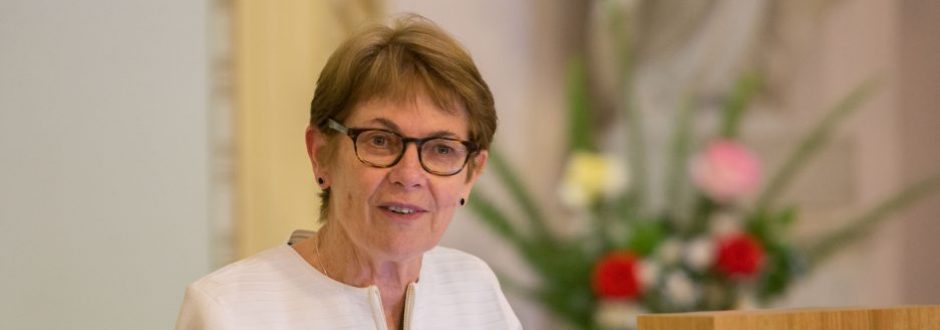Stories create an emotional connection and can inspire us to act to overcome bigotry and racism, writes Sister Patty Fawkner. Stories, rather than statistics or angry midnight tweets, can change the world.
I was in my 20s when I first heard of the 1838 Myall Creek Massacre in which a group of white settlers murdered 28 Aboriginal men, women and children in northern New South Wales. I never learnt that at school.
I was in my 30s and living in Western Victoria when I was shocked by stories of the poisoning of Aboriginal Australians by local farmers back in the 1840s. I never learnt that at school.
And it was only in April 2020 on the 250th anniversary of Captain Cook’s landing at Botany Bay, that I became aware that Cook, as reported in his own log, shot a musket three times at two Aboriginal men. He fired from his landing boat before even setting a foot on Australian soil. Needless to say, I never learnt that at school.
There was understandable outrage when statues of Captain Cook were defaced as part of ongoing Black Lives Matter protests. As two commentators observed in an article entitled Censored history is a false reality (Sydney Morning Herald, June 15, 2020), we should not deny our history, nor mean-spiritedly resile from celebrating Cook’s considerable achievements.
I agree. However, it seems that a catalyst for the outrage unleashed by protest movements is the fact that we censor our history, and always have. Even now, a call for a more balanced history of the European founding of our nation, admitting the heinous crimes as well as the considerable achievements, is likely to be caricatured and dismissed as a ‘black armband’ view of history. We continue to airbrush our founding story.
History, it is said, is written by the ‘winners’. And Western history is almost universally his story – white man’s story – with women and First Nations peoples silenced or rendered invisible in the chronicling of past events and human affairs.
It occurs to me that positive social change will require us to tell the story of past events from all perspectives, but especially from the perspective of those whose voices we have not heard. We need to tell her story and First Nations peoples’ story. As Richard Powers says in his novel, The Overstory: “The best arguments in the world won’t change a person’s mind. The only thing that can do that is a good story.”
This was Jesus’ modus operandi. He told stories, all kinds of evocative stories of pompous and wastrel sons of an extravagantly forgiving father, of farmers sowing seed and fishermen with their nets a’breaking, of pearls and hidden treasure, of persistent widows and frantic housewives seeking a lost coin, and, of course, a traveller who breaks all sorts of social, ethnic and religious norms to help a wounded man left for dead on a dusty road. These stories imprint our hearts more enduringly than commandments etched on stone tablets.
Stories create an emotional connection and can inspire us to act. Stories tell us who we are and help us make meaning in our lives. Stories, rather than statistics or angry midnight tweets, can change the world. ‘Stats and facts’ are necessary but they can anesthetise whereas stories can animate and stimulate.
Within the pages of history, the invisibility of First Nations peoples, of women, people with disability, people of diverse sexual orientation, people ‘not like me’, contribute to the dangerous belief that their lives do not matter, that they are objects of history rather than subjects with agency.
Bigotry and racism are fuelled by fear of and ignorance about people who have never become alive in our imaginations and consciousness. But their stories enable us to see that they, too, feel and bleed, love and hurt.
It is not by chance that government officials do all in their power to ensure that asylum seekers in offshore detention centres remain faceless, voiceless and nameless. They are referred to by numbers. If the Australian people were truly to ‘meet’ them, to hear their stories of what led them to risk their lives in an attempt to secure freedom and asylum, our hearts and thus our policies would change.
It occurs to me that there has never been such a need of hearing the untold tales of oppressed people’s agency, leadership, sacrifice and heroism. Would that such stories be more widely taught so the next generation can confidently say, “I learnt that at school”.
